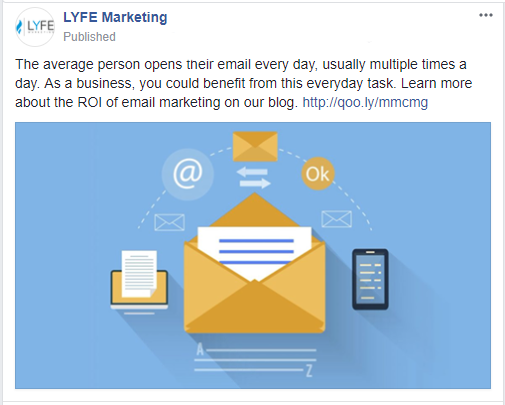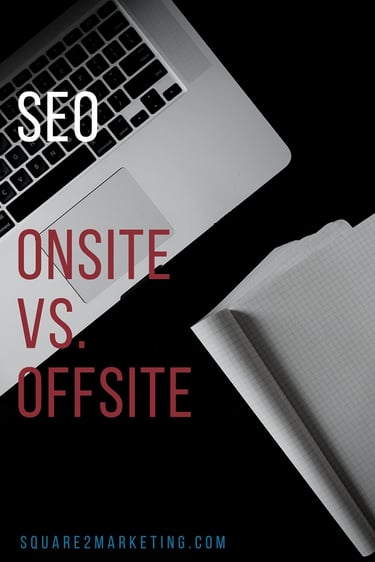Website Marketing
In many ways, your company’s website is the cornerstone of your digital marketing strategy. This is where many of your target customers first get an impression of your brand, and more often than not, this is where your leads will eventually convert into paying customers. So let’s talk more about how your website plays a role in how digital marketing works.
The goal of digital marketing is to attract, engage, and convert your leads. Many of the tactics that you will use to do this will ultimately lead your target customers back to your website to get more information or make a purchase.
Your website is sometimes your brand’s only chance to make a good first impression with consumers in your target market. For this reason, you should pay attention to the layout of your site as well as the colors and graphics that you use in your site design. In fact, according to Adobe, 38% of people will stop engaging with a website if they find the content or layout to be unattractive.
However, the appearance of your site is not the only thing that matters. Since your website is the center of many of your digital marketing campaigns, it’s important that it is designed and optimized for conversions. This means creating a site that is easy to navigate and read with clear guidance for the next steps consumers need to take to move further down the funnel. This also means creating a site that optimized for mobile devices to improve the mobile user’s site experience.
If you aren’t sure that your website is effective, it may be time to work with web design experts who can help you improve and optimize your website design. Visit our web design services page to learn more about how web design impacts your campaign results and how a web design agency like LYFE Marketing can help you see real results.
Search Engine Optimization
Search engine optimization also plays a big role in how digital marketing works. If you want to reach and convert consumers in the digital age, you’ll need to start with the search engines. A recent research study by Forrester found that 71% of consumers start their buyer’s journey on search engines like Google. If you are not taking the right steps to improve your site’s SEO then you may be missing out on a powerful opportunity to reach a significant amount of leads.
Search engine optimization is the process of optimizing your site’s content so that it appeals to the search engines. The end goal is to rank higher on the search engine results page (SERP) to increase visibility in your target market. The higher you rank on the SERP, the more organic traffic you can drive back to your website.
Search engine optimization not only brings more traffic to your website, but it also helps ensure that the leads you are bringing in are of a higher quality. The goal of digital marketing is to attract those who are right for your products or services, and SEO plays an important role in doing just that. By emphasizing certain keywords and topics within your content, you can work to reach those online who are most likely to be interested in your products or services.
Now that you know how important search engine optimization is to all of your digital marketing efforts, you may be wondering how you can optimize your site and content for best results. Head on over to our search engine optimization services page to learn more about the role that SEO plays in your digital campaigns and how an SEO agency can help you achieve your goals.
Content Marketing
Content marketing is another important tactic that plays a significant role in how digital marketing works. Content marketing is essentially when your business creates and promotes certain content assets that are aimed at attracting and engaging your target customers. These content assets can be created for a number of different purposes, including generating brand awareness, growing site traffic, boosting leads, or retaining customers.
No matter which tactics that you use as part of your digital marketing strategy, you will need to create content to support these tactics. This can be something as short and simple as a thank you email to someone who has subscribed to your email list. Or it can be a longer, more detailed piece like an e-book, that describes and provides information about one of the biggest challenges that your target customers face.
Here are just a few types of content marketing that you might create to support your digital marketing campaign goals:
- Website pages
- Blog posts
- Social media posts
- E-books
- White papers
- Case Studies
- Testimonials
- Videos
- Images
- Infographics
- Podcasts
- Ad Content
The key to creating great content assets that help support your digital marketing campaigns is strategically choosing topics that appeal most to your audience. If you haven’t already, make sure that you do some target audience research and even create customer personas to ensure that you know your customers well and can identify what types of content will attract and engage them at each step in the buyer’s journey.
Ready to learn more about where content marketing fits into your strategy? Take a quick peek at our content marketing services page to find out more about why content is so important and how the content marketing experts at LYFE can help you get started.
Social Media Marketing
Most brands today are using social media marketing to support their digital marketing campaigns and drive more traffic to their website. Social media marketing involves promoting your content and engaging with your target consumers on social media channels like Facebook, Instagram, LinkedIn, and Pinterest. This tactic is used in digital marketing to help businesses increase brand awareness, generate more leads, and improve customer engagement.
One of the biggest appeals of social media marketing is that it allows businesses to reach a wider audience online. For example, 79% of American internet users are active on Facebook. If your business is not trying to reach and engage these consumers on the social platform, then you are certainly missing out on an important opportunity to reach new leads.
Social media not only works as its own tactic, but it can also support all of your other digital marketing efforts. For instance, if your brand develops an informative eBook that speaks to your target audience’s pain points, you can use social media to promote the eBook and drive traffic to the landing page for the download. You can then re-purpose pieces of the eBook for future social media posts as a way to generate further interest for the content piece.
 If you want to learn more about social media management and how it might fit into your overall digital marketing strategy, be sure to check out our social media management services page where you can find more details about how social media management and advertising fit into your digital marketing strategy.
If you want to learn more about social media management and how it might fit into your overall digital marketing strategy, be sure to check out our social media management services page where you can find more details about how social media management and advertising fit into your digital marketing strategy.
PPC Advertising
Though the goal of your digital marketing strategy may be to bring in as much organic traffic as possible, your business should not ignore the value of pay-per-click (PPC) ads. PPC ads are a type of advertising that involves paying the ad publisher every time a new lead clicks on your ad. Google AdWords is one of the most popular and effective types of PPC ads. Google AdWords helps your business appear on the first page of the search engine results.
You may be wondering, why should I pay for ads when I’m already working to improve my site’s SEO? Though search engine optimization is important, it takes a long time to start working its magic. That’s where PPC ads come in handy. PPC ads can help you see results more quickly by putting your site at the top of the search engine results page for relevant search terms. By appearing on the first page of the SERP, your business gains new visibility and searchers are more likely to find and click on your site.
 PPC ads not only generate more traffic to your site, but they can help you ensure that the leads you are getting are qualified. Those who are clicking on your PPC ads are consumers who are searching for the topics that are most relevant to your products or services. This means that they are more likely to be interested in your brand and the products or services that you provide.
PPC ads not only generate more traffic to your site, but they can help you ensure that the leads you are getting are qualified. Those who are clicking on your PPC ads are consumers who are searching for the topics that are most relevant to your products or services. This means that they are more likely to be interested in your brand and the products or services that you provide.
Want to know more about PPC ads and how they work in the digital marketing process? Check out our PPC management services page for more information about why PPC ads are essential and how LYFE can help you get started with your next PPC ad campaign.
Email Marketing
Email marketing is yet another piece of the puzzle that is how digital marketing works. Companies can use branded emails to communicate with their target audience. Marketing emails are often used as a way to increase brand awareness, establish industry leadership, promote events, and get the word out about special promotions.
The content of your marketing emails will ultimately depend on your campaign goals. Here are just a few examples of the types of email marketing content you might develop to support your digital marketing campaigns:
- Send a welcome email when new users subscribe to your marketing email list letting them know what they can expect to see from your brand emails.
- Deliver promotional content about upcoming sales and discounts straight to the consumer’s inbox.
- Develop a newsletter that goes out to subscribers periodically to deliver the latest content and company updates from your business.
- Email leads after they have downloaded content from your site to thank them for their interest and even recommend additional relevant content pieces.
- Suggest additional products or content assets that your leads and customers may be interested based on their browsing and buying behavior.
It’s important to note that email marketing is mainly used not for generating new leads, but rather nurturing leads once they have shown interest. Marketing emails can also be used as part of your customer retention campaigns. In fact, according to eMarketer, 80% of retail professionals report that email marketing is one of the best tactics for driving customer retention.
Like the other tactics mentioned above, email marketing is not used solely by itself. Sure, you might create a monthly newsletter to engage your leads or promote certain sales or discounts through email. However, you can also use email marketing to support some of your other campaign tactics like content marketing and social media.
Let’s say that you want to hold a social media contest as a way to generate new leads and foster some excitement for a new product that your business is launching soon. Email marketing can be used to support this social media campaign. By letting your subscribers know that the contest is happening, you can work to get more people entered into the contest. In addition, each email that you send to leads and customers can include links to your social media pages as a way to drive more traffic to the platform and your contest.
 Today, search engine optimization comes in two flavors: onsite and offsite.
Today, search engine optimization comes in two flavors: onsite and offsite. After you know what your keywords should be, you can get started applying your keyword research to your SEO efforts. Onsite SEO is fairly straightforward. After you've identified the most relevant keywords for each page of your site and weighted search volume vs. competition/difficulty, it's time to start crafting your content around those keywords.
After you know what your keywords should be, you can get started applying your keyword research to your SEO efforts. Onsite SEO is fairly straightforward. After you've identified the most relevant keywords for each page of your site and weighted search volume vs. competition/difficulty, it's time to start crafting your content around those keywords.  Tweet This
Tweet This


 If you want to learn more about social media management and how it might fit into your overall digital marketing strategy, be sure to check out our
If you want to learn more about social media management and how it might fit into your overall digital marketing strategy, be sure to check out our  PPC ads not only generate more traffic to your site, but they can help you ensure that the leads you are getting are qualified. Those who are clicking on your PPC ads are consumers who are searching for the topics that are most relevant to your products or services. This means that they are more likely to be interested in your brand and the products or services that you provide.
PPC ads not only generate more traffic to your site, but they can help you ensure that the leads you are getting are qualified. Those who are clicking on your PPC ads are consumers who are searching for the topics that are most relevant to your products or services. This means that they are more likely to be interested in your brand and the products or services that you provide.